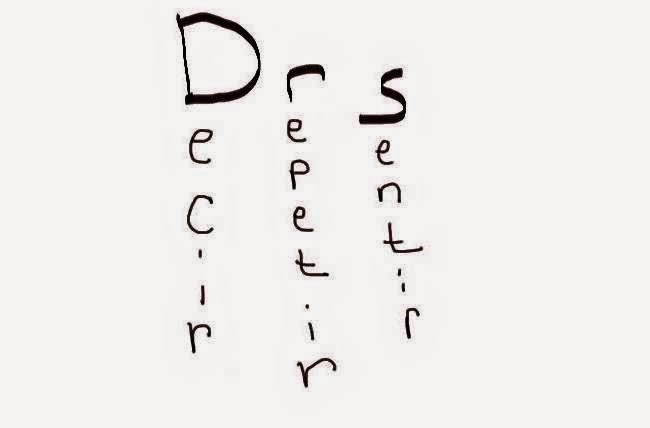This week we were entertaining some Spanish speaking out-of-towners, and I could not think of a single word to say to get the conversation started. In honor of this humbling experience, today's post is on how to say Nice to meet you (Mucho Gusto) and Likewise ( Igualmente) if the Spanish speaker beats you to the "Nice to meet you" part. That is all you really need to know, because conversations that go beyond this tend to go down hill.
I picture a big goose ( because that is what I felt like when I forgot these greetings) talking to another big goose. Neither goose speaks very well, so the first goose just points to the other big goose and says,"Much goose" It could be a reference to the bird's size. I don't know. The other bird is equally as poor of a communicator and tries to say something like, "back at ya" or "ditto" but all that comes out is "Equal."
Thursday, September 25, 2014
Tuesday, September 16, 2014
Irregular Present Tense Spanish Verbs/ Only In The Yo Form
Some present tense verbs only have a messed-up spelling when it is conjugated in the YO form.
Here are the 5 most common for Spanish beginners:
Salir => Yo Salgo
Traer => Yo Traigo
Oir => Yo Oigo *
Poner => Yo Pongo
Hacer => Yo Hago
The first thing you should have noticed is that all of these words end in GO. GO should make you thing of STOP. And STOP has all the first letters of these irregular verbs. If you picture a stop sign being cut in Half, you have the H of hacer.
For those who need a visual, see below:
Wednesday, September 3, 2014
Irregular Stem-Changing Present Tense Spanish Verbs
Learning a list of the irregular Spanish verbs in the present tense is the first big challenge in Spanish.
This is how I break it down:
When I think of the word irregular, I think of people because all people are irregular.
The word PEOPLE tips me off to the 3 changes that happen to the verbs that are irregular.
some verbs have an E that changes to an I
some verbs have an E that changes to an IE
and
Since we are thinking of people, have you noticed that people are ether Doctors, QVC shoppers, or they are full pep. If you share this observation, then it will be easier to remember 10 common irregular present tense verbs.
The Doctor verbs have an E that changes to an I
The QVC and PEPP verbs change from E to IE
to remember the o to ue verbs I use this mnemonic: Al Can Judge Dorm Violence
Which means: Al (almorzar) Can (contar) Judge (jugar) Dorm (dormir) Viol- (volver) Ence(encontar)
Subscribe to:
Comments (Atom)




